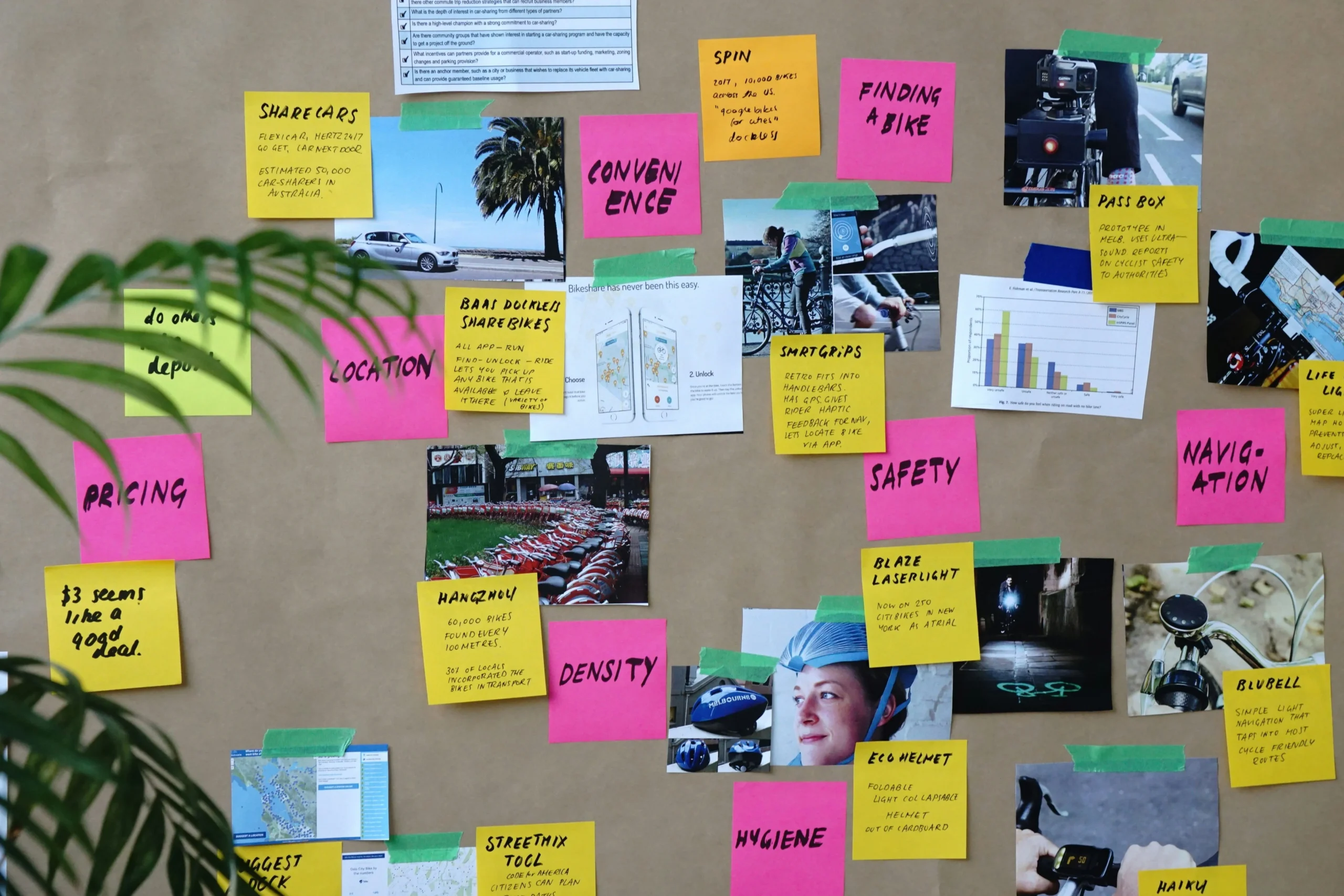The Art of Effective Project Management: Unlocking Success and Driving Results
In the fast-paced world of project management, the ability to effectively lead and execute projects can make all the difference between success and failure. Whether you’re a seasoned project manager or just starting out in your career, understanding the art of effective project management is crucial. It requires a combination of strategic thinking, strong leadership skills, and the ability to drive results.
In this article, we will delve into the secrets of effective project management and explore how you can unlock success and drive results in your projects. We’ll explore key strategies and best practices that can help you streamline processes, increase productivity, and deliver projects on time and within budget. From setting clear goals and objectives to creating a project plan that facilitates collaboration and communication, we’ll cover all the essential elements that will enable you to successfully manage your projects from start to finish.
Whether you’re working on a small-scale project or managing a complex initiative, mastering the art of effective project management is crucial for delivering results. So, let’s dive in and uncover the secrets that will elevate your project management skills to new heights.
Key principles of effective project management
Effective project management is built on a foundation of key principles that guide the successful execution of projects. These principles serve as a roadmap for project managers, helping them navigate through the complexities of their projects and ensure that they are on the right track to achieving the desired outcomes.
One of the fundamental principles of effective project management is proper planning. This involves defining the scope, objectives, and deliverables of the project, as well as identifying the key milestones and deadlines. By creating a detailed project plan, project managers can set clear expectations and allocate resources effectively.
Another important principle is effective communication. Communication plays a critical role in project management, as it facilitates collaboration, aligns stakeholders, and ensures that everyone is on the same page. Project managers should establish open lines of communication, encourage feedback, and provide regular updates to keep all team members informed.
Lastly, project managers must have strong leadership skills. They need to inspire and motivate their team members, provide guidance and support, and make tough decisions when necessary. Effective project managers lead by example and create an environment that fosters teamwork, creativity, and innovation.
The role of a project manager
As the key driver of a project, the project manager plays a pivotal role in its success. They are responsible for overseeing the entire project lifecycle, from initiation to closure, and ensuring that the project is delivered on time, within budget, and to the satisfaction of stakeholders.
One of the primary responsibilities of a project manager is to define the project’s goals and objectives. This involves working closely with stakeholders to understand their expectations and aligning them with the project’s deliverables. By setting clear goals and objectives, project managers provide a sense of direction and purpose to the project team.
Another crucial role of a project manager is to manage project teams and stakeholders. This involves identifying the necessary resources, assigning tasks, and coordinating the efforts of team members. Project managers must also engage and communicate with stakeholders throughout the project to ensure their needs are met and any concerns or issues are addressed in a timely manner.
Additionally, project managers are responsible for monitoring and controlling project progress. They need to track key performance indicators, identify risks and issues, and implement appropriate measures to mitigate them. By regularly assessing project progress, project managers can make informed decisions and take corrective actions to keep the project on track.
Project management methodologies and frameworks
In the world of project management, there are various methodologies and frameworks that help guide project managers in their approach to project execution. These methodologies provide a structured framework for managing projects and offer a set of best practices and tools that can be tailored to meet the specific needs of each project.
One popular project management methodology is the Waterfall approach. This methodology follows a linear sequential flow, where each phase of the project is completed before moving on to the next. The Waterfall approach is ideal for projects with well-defined requirements and a clear scope, as it allows for thorough planning and minimizes changes during the project.
Another widely used methodology is Agile. Agile is an iterative approach that focuses on delivering value to the customer through incremental development and frequent feedback. It emphasizes collaboration, adaptability, and flexibility, making it suitable for projects where requirements are likely to change or evolve over time.
Apart from these methodologies, there are also hybrid approaches that combine elements of different methodologies to suit the unique requirements of a project. These hybrid approaches allow project managers to leverage the strengths of different methodologies and create a customized approach that best fits their project.
Planning and organizing a project
Proper planning and organization are essential for the successful execution of any project. This involves breaking down the project into smaller tasks and activities, estimating the resources required, and creating a realistic timeline and budget.
The first step in planning a project is to define its scope. This involves clearly identifying the goals, objectives, and deliverables of the project, as well as any constraints or limitations. By having a clear understanding of the project scope, project managers can set realistic expectations and avoid scope creep.
Next, project managers need to create a work breakdown structure (WBS). The WBS breaks down the project into smaller, manageable tasks and activities, allowing for better resource allocation and task assignment. This helps in identifying dependencies between tasks and ensures that the project progresses smoothly.
Once the tasks and activities are identified, project managers can estimate the resources required for each task. This includes human resources, equipment, and materials. By accurately estimating the resources, project managers can ensure that they have the necessary means to complete the project on time and within budget.
Lastly, project managers need to create a project schedule and budget. The project schedule outlines the sequence of tasks and activities, their durations, and any dependencies. It helps in visualizing the project timeline and identifying critical paths. The project budget, on the other hand, outlines the estimated costs for the project, including labor, materials, and overheads.
Defining project goals and objectives
Defining clear and measurable project goals and objectives is crucial for project success. Goals provide the overall direction and purpose of the project, while objectives outline the specific outcomes and deliverables that need to be achieved.
When defining project goals, it’s important to ensure that they are aligned with the overall organizational strategy and objectives. This helps in establishing a clear link between the project and the organization’s vision and mission. Project goals should also be specific, measurable, achievable, relevant, and time-bound (SMART). This ensures that they are clear, attainable, and can be easily tracked and evaluated.
Once the project goals are defined, project managers need to break them down into specific objectives. Objectives should be clear, concise, and aligned with the project’s goals. They should also be measurable, so that progress can be tracked and evaluated. By defining clear objectives, project managers provide a roadmap for the project team and ensure that everyone is working towards the same outcomes.
Monitoring and controlling project progress
Monitoring and controlling project progress is crucial for ensuring that the project stays on track and achieves its objectives. This involves tracking key performance indicators (KPIs), identifying risks and issues, and implementing appropriate measures to mitigate them.
One of the key tools for monitoring project progress is the use of KPIs. KPIs are measurable indicators that help project managers assess the performance and progress of the project. They can include metrics such as project duration, budget variance, resource utilization, and customer satisfaction. By regularly tracking and evaluating KPIs, project managers can identify any deviations from the plan and take corrective actions.
Project managers also need to identify and manage risks and issues that may arise during the project. This involves conducting risk assessments, developing risk mitigation strategies, and implementing contingency plans. By proactively managing risks and issues, project managers can minimize their impact on the project and prevent them from derailing its progress.
Additionally, project managers need to ensure that project changes are managed effectively. This includes evaluating change requests, assessing their impact on the project, and implementing appropriate change control procedures. By managing changes effectively, project managers can maintain project stability and prevent scope creep.
Effective communication in project management
Effective communication is a cornerstone of successful project management. It facilitates collaboration, aligns stakeholders, and ensures that everyone is on the same page. Project managers need to establish open lines of communication, encourage feedback, and provide regular updates to keep all team members informed.
One of the key aspects of effective communication is establishing clear channels and methods of communication. Project managers need to determine the most appropriate means of communication for different stakeholders and ensure that they are easily accessible. This can include face-to-face meetings, phone calls, emails, or project management software.
Project managers also need to encourage open and honest communication within the project team. This involves creating an environment where team members feel comfortable sharing their ideas, concerns, and feedback. By promoting a culture of open communication, project managers can foster collaboration, creativity, and innovation within the team.
Furthermore, project managers need to provide regular updates and progress reports to stakeholders. This helps in keeping them informed about the project’s status, any changes or issues, and the overall progress towards the goals and objectives. By providing timely and transparent communication, project managers can build trust, manage expectations, and ensure stakeholder satisfaction.
Project management tools and software
In today’s digital age, project managers have access to a wide range of tools and software that can help streamline project management processes and enhance productivity. These tools offer features such as task management, resource allocation, scheduling, and collaboration, making it easier for project managers to plan, execute, and monitor their projects.
One popular project management tool is Trello. Trello is a visual collaboration tool that allows project managers to create boards, lists, and cards to organize and prioritize tasks. It provides a clear overview of the project’s progress and enables easy collaboration and communication among team members.
Another widely used project management software is Microsoft Project. Microsoft Project offers comprehensive project planning and scheduling capabilities, allowing project managers to create Gantt charts, track progress, and manage resources. It also integrates with other Microsoft Office tools, making it easy to share project data and collaborate with stakeholders.
Apart from these tools, there are also project management software suites that offer a comprehensive set of features for project planning, execution, and monitoring. Examples include Asana, Monday.com, and Jira. These software suites provide a centralized platform for managing projects, tasks, resources, and communication, making it easier for project managers to stay organized and drive results.


